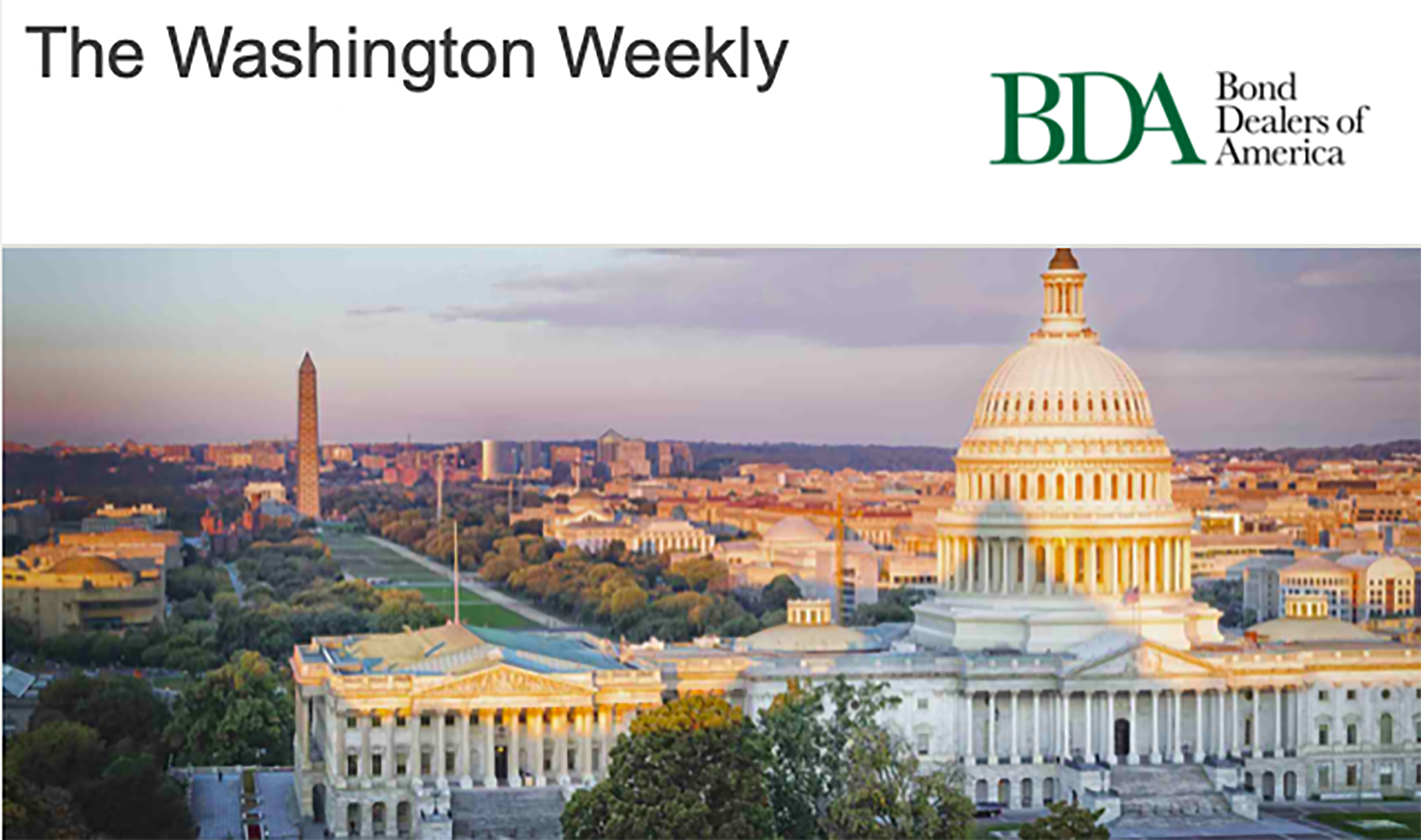
As Congress reconvened from a 2 week Easter recess, private infrastructure squabbles turned public, likely ending any existing hope for a serious bipartisan push. While arguments boiled over on size and scope, House Ways and Means Members were busy drafting financing language for the eventual bill, with an emphasis on bonds, and the Senate was quick to follow suit. More on this below.
This week, President Biden hosted a bipartisan group of lawmakers, all of which were former Mayors and Governors, to discuss the pending legislation. While details on Administration demands are light, all indications are that compromise is still in play at 1600 Pennsylvania Ave. However, the same cannot be said about the U.S. Senate.
Scope and timing still remain murky, but at this time we still believe the bill will be closer to the Biden Administrations’ $2 trillion dollar figure and will be primed for passage by early fall.
Muni Watch:
House and Senate Introduce Muni Legislation
Rep. Terri Sewell (D-AL) a Member of the House Ways and Means Committee and Senators Roger Wicker (R-MS) and Michael Bennet (D-CO) have released legislation that would address many BDA and MBFA municipal bond priorities.
On the Senate side, the American Infrastructure Bonds Act would create a new direct-pay taxable bond similar to Build America Bonds, but exempt from sequestration with a flat 28% reimbursement rate.
And on the House side, Rep. Sewell introduced more expansive legislation, the LIFT Act, that would:
- Reinstate advance refundings as they were in pre-2018 tax law. This provision would take effect 30 days after the date of enactment.
- Expand bank-qualified bonds. The bill would raise the annual issuance limit for bank-qualified bonds from $10 to $30 million, an index that limits annually for inflation, and apply the issuance test at the level of the borrower, not the issuer, so that it will apply to small conduit borrowers. This would take effect upon enactment.
- The bill would establish a new category of tax-preferred financing for state and local governments to be known as Qualified Infrastructure Bonds (QIBs). Similar to the previous Build America Bonds program, QIBs would be an alternative to tax-exempt financing. Issuers would sell taxable bonds and receive a cash reimbursement from the federal government for a portion of their interest expense.
Reimbursement payments to issuers would be subject to sequestration, and projects financed with QIBs would be subject to Davis-Bacon prevailing wage laws.
Reimbursement rates would vary based on the calendar year of issuance according to the following schedule:
- 2020-2024: 42%
- 2025: 38%
- 2026: 34%
- 2027 and thereafter: 30%
The BDA and MBFA believe that these provisions will be included in the initial infrastructure tax title draft from the House Committee on Ways and Means in the coming weeks. While details such as sequestration and additional muni provisions such as the expansion of PABs are yet to be ironed out, muni priorities are likely to pass Committee vote and be taken up by the full House this summer.
